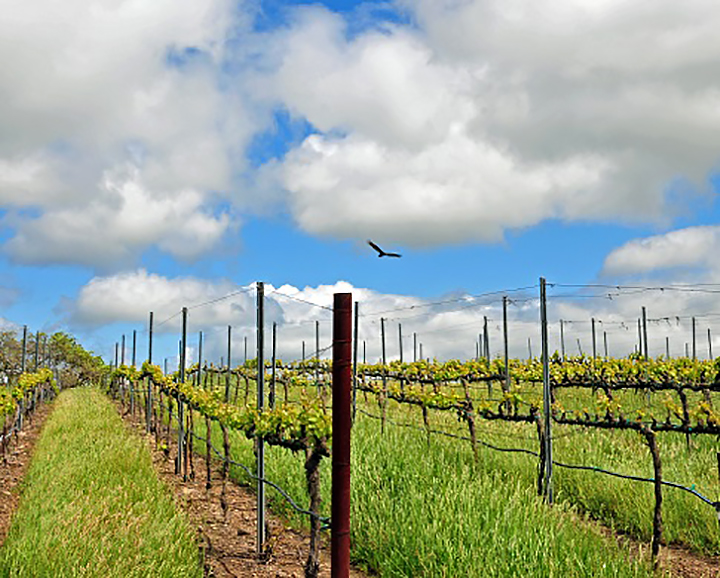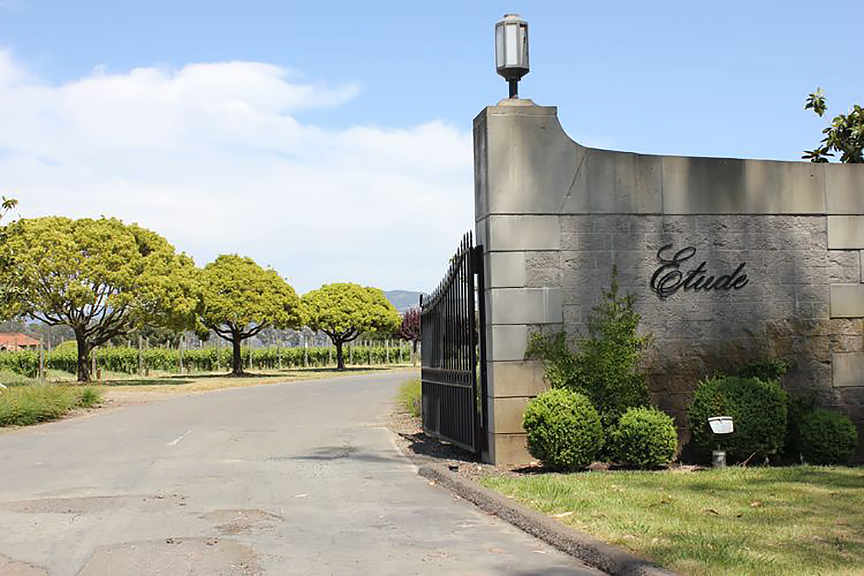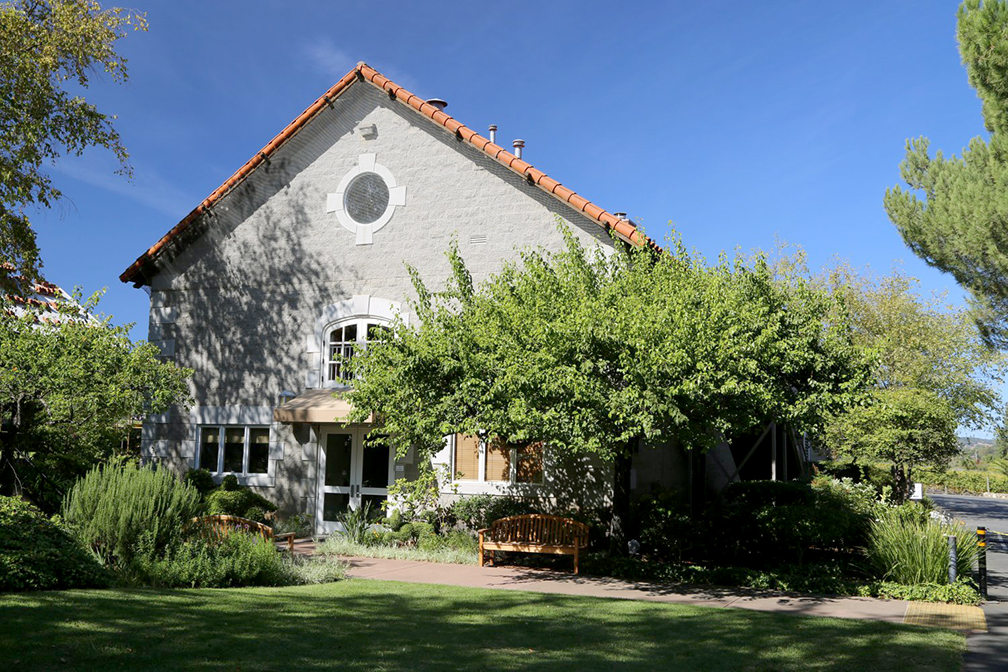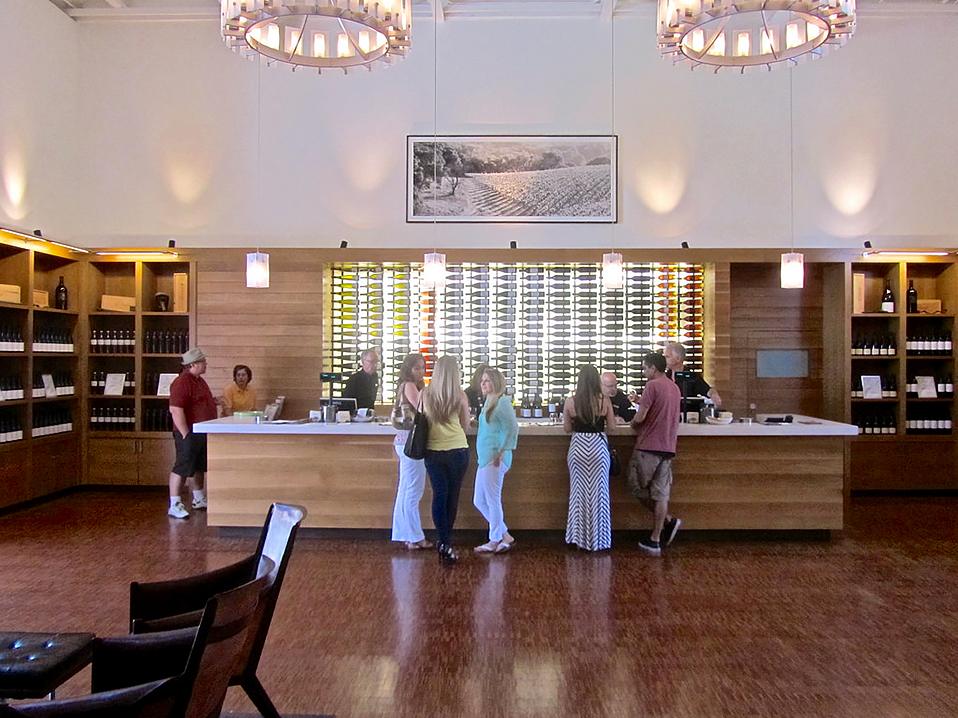Medium ruby color; cherry, forest floor, gingerbread on nuanced nose; cherry, plum, black tea, strawberry, cassis on the palate.
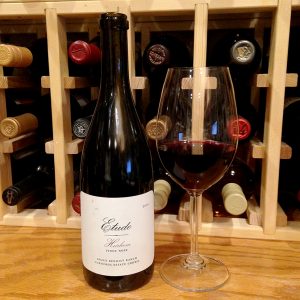
Dry; medium body; soft, fine-grained tannins that are silky and elegant; racy acidity, minerality on the finish. Nicely complex and sophisticated with impressive finesse; vivid, opulent fruits with some intriguing tartness mid-palate where nice spice notes play with orange zest. Well-integrated oak throughout. Continues to come together with depth and layers of fruits through a persistent, very satisfying finish.
This is why you pull cork on a well-made Carneros pinot noir. Grapes come from estate vineyards at Grace Benoist Ranch where the vines produce small bunches and even smaller berries, generating small yields and intense, complex flavors. The vividly delicious and—at the same time, subtle—flavors are why are why you enjoy the wine, also why you pay almost a Benjamin for the privilege of doing so. The splurge is more than worth it.
Tony Soter established Etude 1982 to realize a commitment to high-end pinot noir. The Carneros AVA was founded the next year. The Grace Benoist Ranch was developed in 2000 with nine Heirloom pinot noir clones, eight additional pinot noir clones, and seven chardonnay clones. The same year, Robert Parker awarded the 1999 Etude Eden Rock Vineyard Cabernet Sauvignon 98 points. The first crush of Grace Benoist Ranch grapes occurred in 2003; the following year, the first pinot noir grapes came into the winery. In 2010, Robert Parker’s Wine Advocate awarded Etude Heirloom Pinot Noir 93-plus points. Etude was firmly entrenched as a Carneros superstar. This effort affirms that lofty position.
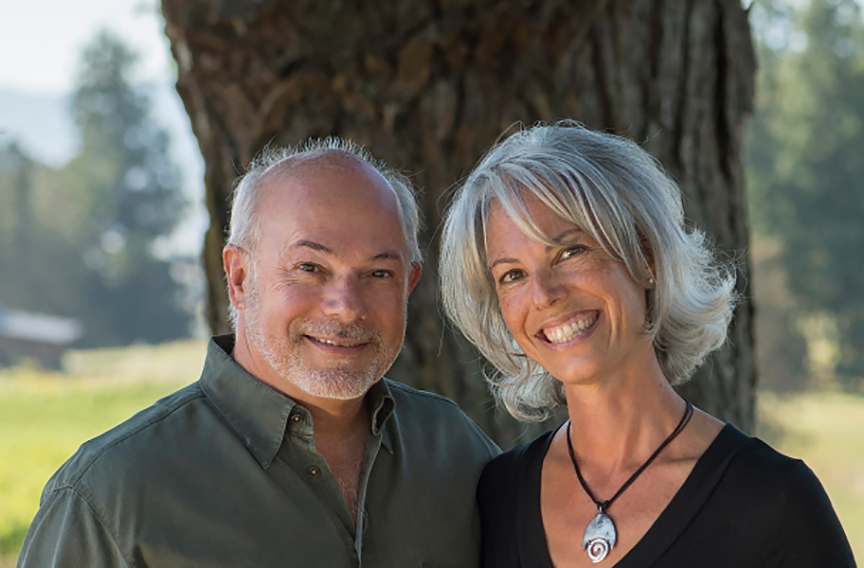
Jon Priest is the winemaker at Etude. His approach always has been wines are made in the vineyard, not in the winery. The Etude website notes: “Jon headed early to the Northwest, attending Whitworth College in Spokane, Washington, but soon returned home as his architect father helped create memorable Central Coast wineries. He worked briefly in a tasting room, and at the legendary Wine Cask in Santa Barbara before joining Wild Horse, beginning a career that led to Adelaida Cellars, to Pinot Noir focused Taz, and on to Etude, where he has spent nearly a dozen years creating memorable wines that tell you where they came from in every sip.”
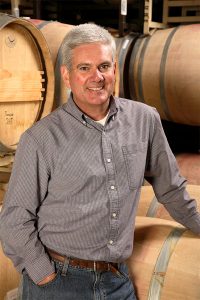
The Grace Benoist Ranch vineyards were established with a solid commitment to sustainability. Native oak and bay trees were retained to protect nearby waterways. Twelve miles of wildlife corridors were incorporated in the planning of the vineyard planting to preserve riparian habitats and the natural migration of wildlife. Naturally occurring wetlands were protected and an erosion control plan was implemented to protect nearby waterways.
The winery continues that commitment; it is Napa Green certified. Solar panels supply about a third of Etude’s energy needs, recycled water is used for landscape irrigation, and employees manage a composting and recycling program which diverts a large percentage of waste away from landfills. Etude also takes pride in their employee cultivated garden, with a portion of the produce donated to the Napa Food Bank.
Etude Heirloom Pinot Noir, Grace Benoist Ranch Vineyard, Carneros 2015 is a classic pinot noir worth finding and paying for. The clarity and pureness of the fruit elevate this into the next level of quality wine, as does the outstanding integration of oak, tannin, and acidity. If you can find it and afford it, get it. Pair with $78-95
